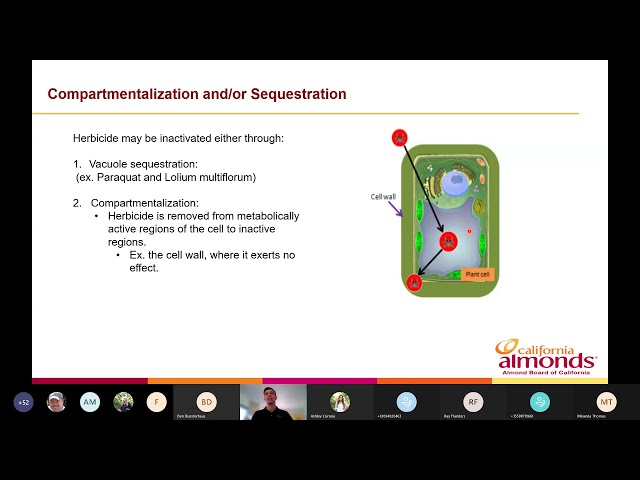Course Description
This course offers a comprehensive exploration of Integrated Weed Management strategies tailored specifically to almond orchards including prevention, mechanical, cultural, chemical, and biological techniques for weed management. Learners will gain an understanding of the mechanisms underlying herbicide resistance. The course will also address the challenges and factors influencing post-harvest weed control practices. Emphasis will be placed on planning the optimal timing for herbicide applications, particularly for residual herbicides like glyphosate and paraquat. By the conclusion of the course, participants will possess the knowledge and practical skills necessary to implement effective and sustainable weed management practices in almond orchards while enhancing productivity and profitability while minimizing environmental impact.
Course Objectives
After completing this course, learners will be able to:
- Describe each of the five components of Integrated Weed Management: prevention, mechanical, cultural, chemical, and biological.
- Describe the mechanisms of herbicide resistance (target site mutation, enhanced metabolism, compartmentalization, and overexpression of target proteins) and recognize herbicide-resistant weeds.
- Utilize weed scouting, identification, and early detection in their IWM programs.
- Describe the challenges and factors impacting post-harvest weed control practices.
- Plan appropriate herbicide application timing of residual herbicides, specifically glyphosate and paraquat.
- Adapt weed control strategies to the needs of the almond orchard in which they are involved, including alternative herbicides and other IWM strategies.

